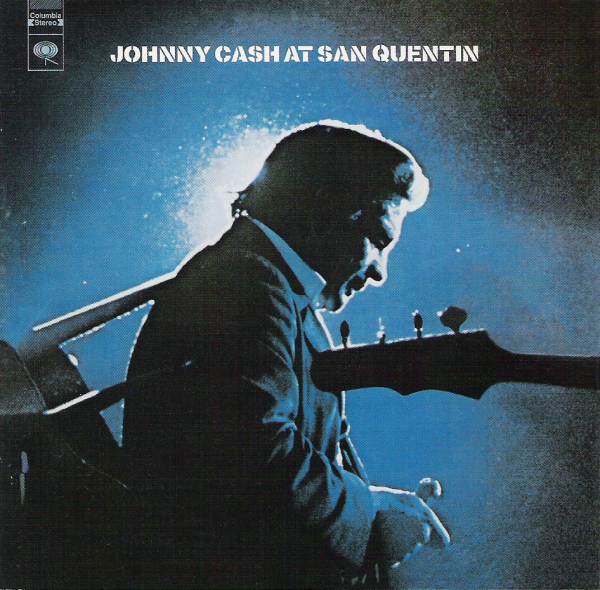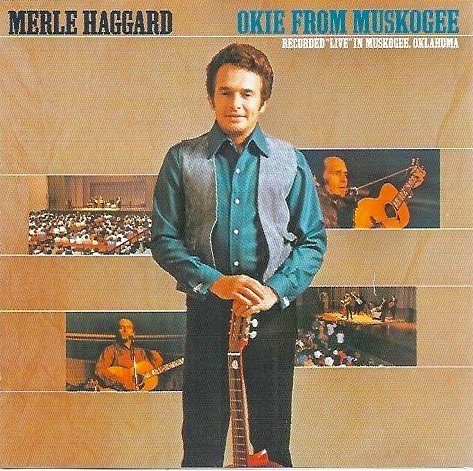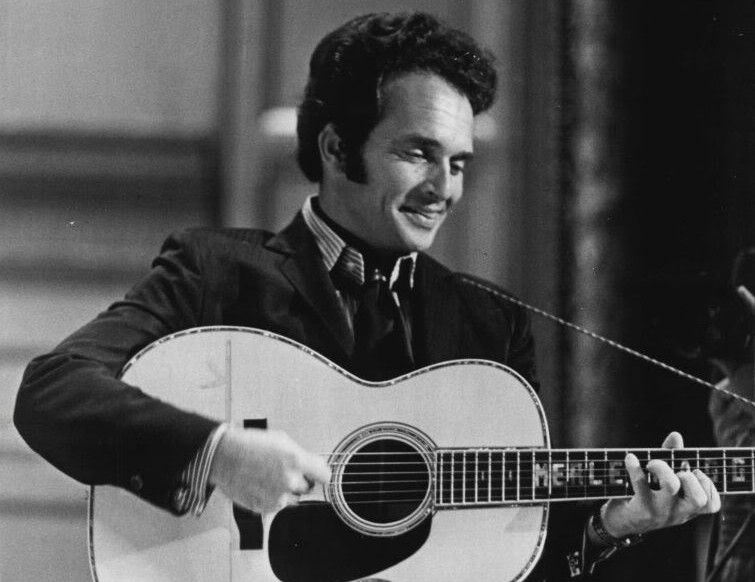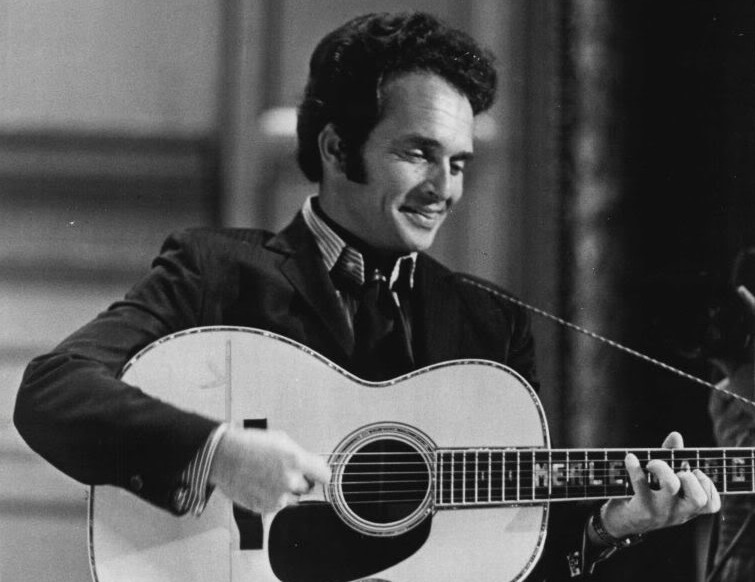Merle Haggard went by many names—including Hag, Mighty Merle, and the Poet of the Common Man—and he was among the most influential singer-songwriters in country music history.
He also personified the life of a rebellious, lawless country music man. Born just outside of Bakersfield on April 6, 1937, to parents who had fled the Oklahoma dust bowl, he spent his teenage years in and out of juvenile institutions and county jails. In 1957 he was arrested for attempting to rob a bar in Bakersfield and served three years in California’s San Quentin State Prison. Haggard didn’t lose his edge in prison—he brawled with other inmates and ran a gambling ring out of his cell—but he also discovered music. When he got out, Haggard started writing songs and playing around Bakersfield, contributing sincere lyrics and a raw, edgy sound to the city’s music scene. Since then, Haggard recorded more than 600 songs and had 38 number-one hits. His music was even played in outer space, thanks to American astronaut Charles Duke, who brought one of Haggard’s tapes aboard Apollo 16 in 1972.
At San Quentin

Okie From Muskogee
While riding on their tour bus through Muskogee, Oklahoma, in 1969, Haggard and his band, the Strangers, were amazed at how much different life was in a small Southwestern town compared to the places they’d seen in the Northeast and on the West Coast, where legions of hippies were protesting the Vietnam War. Haggard’s drummer, Roy Burris, casually commented, “I bet they don’t smoke marijuana in Muskogee.”

According to L.A. Times music writer, Robert Hilburn, Haggard changed his tune a few times when talking about the song’s origin. “In some interviews, he has said he wrote it for his father, saying, ‘Dad was proud of being an Okie. That’s where ‘Okie From Muskogee’ came from. He was the guy in the song.’ In others, however, Haggard maintained that it was just a joke that he came up with one night while riding the bus through Oklahoma.”
Whichever story is true, Haggard always maintained that he wrote the song tongue-in-cheek, as evidenced by the line, “A place where even squares can have a ball.” But Haggard had no idea at the time just how much those “squares” would rally around “Okie from Muskogee.”
It’s a Hit! When Haggard debuted the song for soldiers at Fort Bragg, North Carolina, in the summer of ‘69, the crowd went completely wild, cheering after every line. That’s how it went with conservatives all over America: “Okie from Muskogee” became a staple of country radio and spent four weeks at #1 on the country chart in late 1969. It went on to win country music’s “Single of the Year” in 1970, and Haggard was named “Vocalist of the Year.”
President Nixon invited Haggard to sing “Okie from Muskogee” at the White House (he obliged). George Wallace even requested that the singer endorse his campaign (he respectfully declined, as he did when white supremacist David Duke requested the song be played at one of his rallies).
So how did Haggard, whose politics leaned left, feel about writing a right-wing anthem? “If I was to do it over again, it would take a lot more thought…I thought [the song] was funny…It was like the epitome of the ignorance on certain subjects. But I’ll be damned if people like Wallace and Nixon didn’t take it for the truth.”









